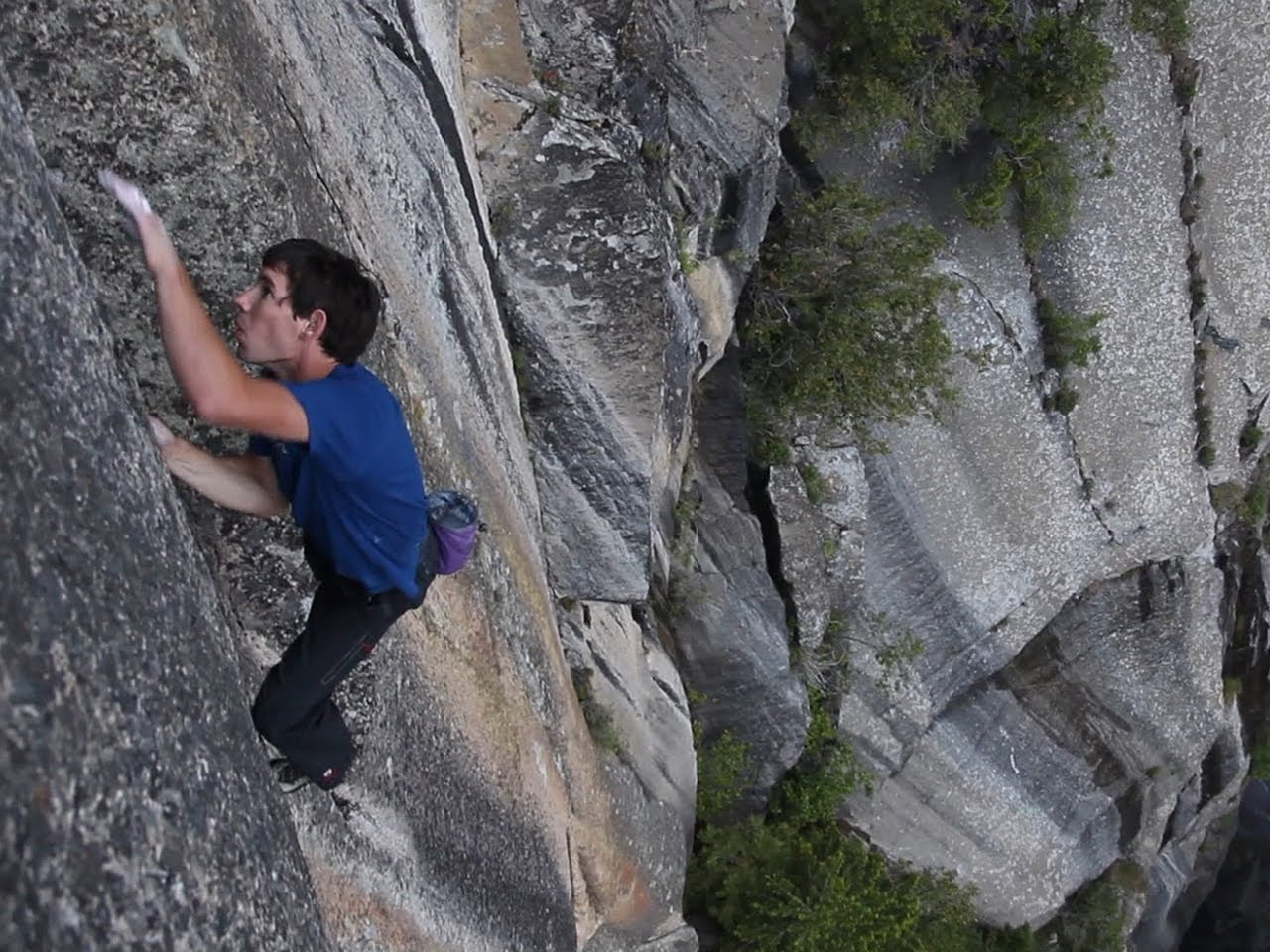FREE SOLO
National Geographic Documentary Films
Reviewed by: Harvey Karten
Director: E. Chai Vasarhelyi, Jimmy Chin
Cast: Alex Honnold
Screened at: Soho House, NYC, 9/13/18
Opens: September 28, 2018
When you hear the word “sports,” what comes to mind? Most people in the U.S. would name football, though in Europe and South America, you would hear “soccer” or “futbol.” Baseball comes to mind in the U.S., Japan and the Dominican Republic, horse racing if you’re from Kentucky. If you went to prep school, it’s lacrosse, if you’re not into group sports, you’ll mention tennis. If two players make too much of a crowd for you, what’s available for a single person? Rock climbing, what else? Surely you’ve heard of “Climbing” magazine and “Rock and Ice.” Rock climbing is front and center in E. Chai Vasarhelyi and Jimmy Chin’s doc, which not only fits well into the National Geographic mold, but forget for a second of Geographic’s animal safaris and consider Clair Popkin, Jimmy Chin and Michael Schaefer’s photography both more dangerous and more exciting than you’ll find on the Disney Channel or most other Geographic features.
The star of the show, multiple prize-winning, Alex Honnold, appears to have a death wish. The 33-year-old climber is among the lucky ones who have survived free solo action, which means ascending Yosemite Park (California) without a rope. This means that the Sacramento-born spiderman, disregards the awful fact that many people indulging in this sports died in their forties and earlier, that one false move and you’re not going to get a backache: you’re dead. Why does he do it? That’s a question that we in the audience get some insight into, and which people closest emotionally to him try to answer. His girlfriend, Sanni McCandless, who breaks down in tears the day before the free solo, worries “What if I never see him again?” His mother, who would naturally be opposed to her son’s hobby just as my own mom forbade me to play high-school football, is resigned, saying that the lad could not survive psychologically if he could not climb. She butts out of trying to change him. His dad, afflicted with Asperger’s, never said he loved him, his mom never hugged him. With the help of his cute girlfriend, he is learning to hug, but will probably never equal in that indoor sport his achievements on the peaks. Modern science delivers another motivation. An MRI scan of his brain indicates that he does not feel fear, nor can he derive stimulation from anything less than extreme sports.
As though to insult McCandless, he affirms that he would always choose his outdoor sport over having a life-partner, and even the photographers, one with the biggest telephoto lens you’ve ever seen, wonder about the ethics of what they’re doing. If he falls, would they want to capture the guy’s final exit?
The movie is part white-knuckle ride and part domestic drama. As for the latter, we eavesdrop on his tete-a-tetes with his girlfriend, watch him cook and eat right out of the pots and pans (out of concern for the environment he appears to be vegetarian, even vegan). We don’t demand that the film’s star be articulate, and he peppers his speech with at least two or even three dozen invocations of “you know” (irritating), and even the teen favorite “like.” All build up to his climb without rope in Yosemite National Part’s El Capitán, not only with no rope but with bare hands, challenging the gods to even dare to allow him to make the miniscule margin of error that would make this last climb. Marco Beltrami’s apt score is probably not even needed: this is a thriller that would make “Vertigo” be an even better title.
96 minutes. © 2018 by Harvey Karten, Member, New York Film Critics Online
Story – B
Acting – B+
Technical – A
Overall – B+






